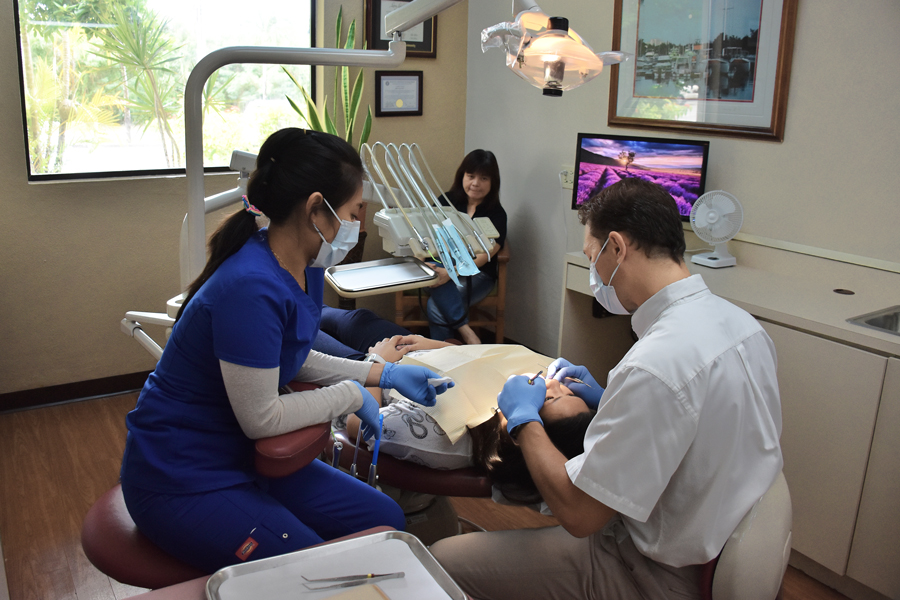
Wisdom teeth, otherwise known as third molars, are the last set of teeth to develop. Sometimes these teeth emerge from the gum line and the jaw is large enough to allow room for them, but most of the time, this is not the case. More often, one or more of these third molars fails to emerge in proper alignment or fails to fully emerge through the gum line and becomes entrapped or “impacted” between the jawbone and the gum tissue. Impacted wisdom teeth can result in swelling, pain, and infection of the gum tissue surrounding the wisdom teeth. Therefore, dentists recommend people with impacted wisdom teeth have them surgically removed.
Why do my wisdom teeth need extracted?
Wisdom teeth removal is a common procedure that assists to eliminate the pain caused by problematic wisdom tooth development. If left in place, difficult wisdom teeth can cause severe pain, infections and serious damage to the surrounding jawbone and teeth.
What is the process?
Here is an outline of what you can expect during your wisdom tooth removal:
What to Expect After Surgery
In most cases, the recovery period lasts only a few days. However, after your wisdom tooth extraction, it is important to follow your dentist’s advice. Following their instructions will promote faster healing and avoid any complications. Some of their recommendations may include:
Contact Us